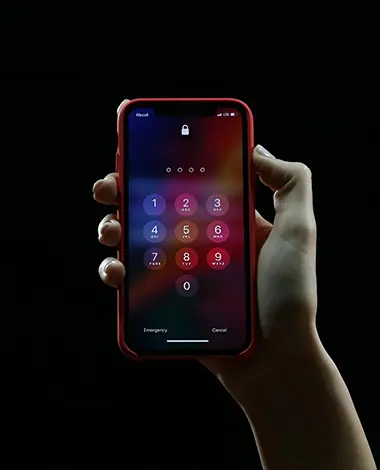I’m one of three co-founders at Focalworks – a small software services company, based out of Navi Mumbai, India. When we started on our entrepreneurial journey in 2007, we were self-funded and coming from very hands-on professional careers, with not much experience of building or running an independent business. Our first dip in the techno-entrepreneurial ocean, so as to say.
As a small business owner, the challenge of spreading the word is exciting, but can also be a bit onerous. And since it is usually not feasible to leverage or even rely on “big-bang” approaches, the journey of reaching out to prospects, building new relationships, and maintaining these relationships is extremely personal!
Perhaps the biggest hindrance to a successful and cohesive relationship is the proverbial us and them, which often results in the various stakeholders pulling in divergent directions. Does this mean that we encourage a culture of default convergence by suppressing challenges or stifling debate? Certainly not.
So, what does it take to break the wall?
I guess this is where we could stick in the much abused laundry list:
- Create an environment of transparency
- Be honest
- Foster empathy
- Under-promise and over-deliver
- Go that extra mile
… and so on. Well, these are all extremely important and necessary factors that must be wholeheartedly embraced by anyone wishing to build any relationship or a business. And at Focalworks, we do constantly strive for open and timely communication – have real conversations, be truly empathetic, understand why is someone saying what they are? The goal here really is to be directionally aligned and for everyone involved to be truly vested in the relationship.
Perhaps those are the two key factors – for everyone to be directionally aligned and to be truly vested!
Unfortunately (but naturally), most relationships start on a transactional trigger. A needs something that B can provide and in almost all cases, B would expect something in return. Whether it is two people or two organisations, this is the hard truth, with the only possible exceptions of childhood friendships which can just “happen”. Per se, this is not an issue. It is a foundational premise. What we build on it is really what makes the difference.
At Focalworks, we have naturally, and not so much by design, been inclined in some ways that we believe has helped us a lot in building meaningful client-vendor relationships and long-term partnerships.
Collective ownership – success or failure
When it comes to us understanding the client’s vision, motivations, concerns, and the various operational parameters and constraints, we really try. And we customise the engagement model and fine-tune our solutions to maximise the chances of a successful outcome, for not just the immediate engagement, but for the long haul. Regardless of the initial engagement model – monthly retainer, timesheet or fixed price, we try our best to have the same folks work on a client engagement. As the engagement matures, we typically build out a dedicated team for each client-partner, that we scale and skill as required. This creates a very high level of accountability in the team.
Since we do a lot of work with startups, this also means that key members of the team have been active participants from the ideation stage all the way to successive pivots and the ongoing reshaping and enhancements as the product matures and scales. And there’s very real ownership in terms of accepting and learning from any failures and ultimately striving for the success of the technology initiative and the client’s venture.
Taking up and overcoming challenges as a team
Almost all our engagements require us to collaborate with remote folks – this could be a single business owner in case of a bootstrapped startup, an existing client team, to a fairly large geographically dispersed personnel comprising client teams and other vendor teams. Sometimes, it may naturally lead to misunderstanding, perhaps even some blame gaming or onemanupship.
There are a few things that we try and codify in the processes that help address these challenges:
- Truly integrate to try and leverage the advantages and skills that each team brings in, rather than take any opportunistic stabs at displacing anyone
- Open up multiple channels of communication, rather than ONLY a SPOC approach
- Do cross-team stakeholder meets (we prefer agile development approaches, which naturally allow for this)
- Create distinct individual and collective responsibilities for specific deliverables
- Build in some tolerance for any inter-team handovers to allow for some gaps and oversights, rather try to push the efficiencies to stressful breaking points
Mutual respect that is earned, nurtured and trusted
It is not easy to trust. It really needs to be earned. The fact that a lot of our new engagements result from referrals from current and past clients does help, since we typically start with some pre-qualification. But it does require re-affirmation on an experiential basis. One of the core values that we hold dear is honest transparency. We only take up something if we firmly believe we will be able to deliver. We only make commitments that we are confident that we can keep. We are frank in expressing our thoughts and sharing our opinions, even if these are divergent, as long as we believe it is for the larger good. And we do not shy away from saying “no” if an ask is unreasonable or not feasible.
At the same time, we immensely value any feedback from our client-partners. We encourage them to be candid and forthright. And we collectively build a healthy ecosystem where we can foster a high degree of transparency. We ensure timely communication; whether it is an unexpected scope creep, or unanticipated delays, or any of the myriad issues that can introduce bottlenecks or have an adverse impact, the key is to make sure that all stakeholders are on the same page and not taken by surprise!
Making it personal
We constantly strive to improve ourselves. We take pride in pulling our weight and consistently delivering value as a development partner. If we miss a deadline, or if something is broken, we really lose sleep over it. Though our contracts almost never have penalty clauses, and even when these issues can be reasonably explained or may not even be attributable to us, we worry about any negative impact it might have on our client-partner’s business. And we are very emotionally invested in the long-term success of the relationship.
It has now been almost 15 years. As any other business, we have had our ups and downs, and we have had to reinvent ourselves a couple of times. But till date, we continue to primarily be a relationship-driven business, and the values that help shape this as almost a core foundational pillar is actively encouraged to permeate throughout the organisation. Most of our engagements continue to strengthen and grow over many years. Our oldest client relationships go back to over a decade, with erstwhile professional relationships transforming to personal friendships.
These wonderful circles of trust and friendship that we have built over the years – that’s truly our legacy and are indispensable.
Photo by Cytonn Photography on Unsplash.
Table of Contents











